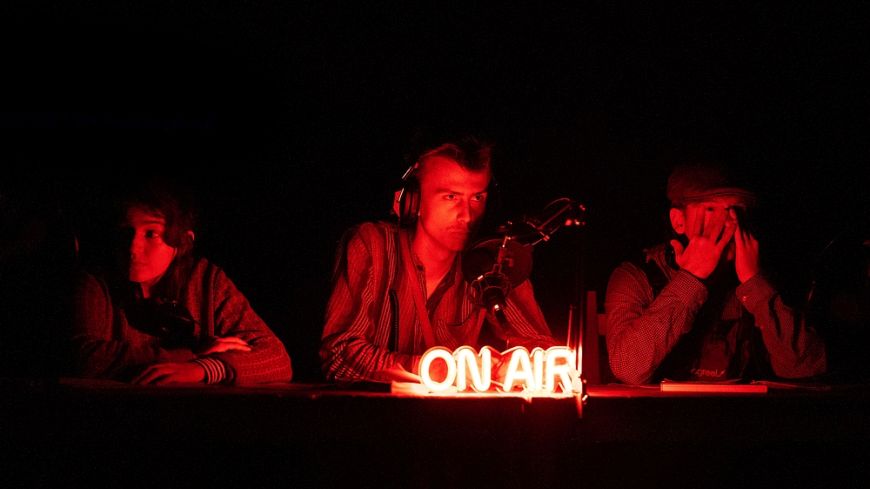
Welcome everybody to the Roehampton Radio Renaissance Festival and a live broadcast of “The Dream House”.
As the cast prepare behind utilitarian tables with microphone booms and a glowing On Air sign, Chief Welfare Contact Alan is filling in as compère. The invitation is to step into the wireless and experience “the joy of listening in this digital age”.
The radio play’s plot revolves around a wealthy young couple who have moved out from London to purchase a manor house and the beauty and hostility which they encounter.
Judith is looking forward to filling the house with parties and new friends, Peter, a rather pompous City-type, is feeling out of place. Digby, a-do-it-all handyman takes a shine to the new lady of the manor but is less enamoured with her standoffish husband. A potential fairy tale, but the spirit of the previous owners lives on, and a strange atmosphere pervades, will the dream be a good one?
Acts are broken by interludes where the apparently award-winning director seems harried and hapless in his task of bringing emotion and drama to the piece, beset by the egos and eccentricities of the cast. His Notes are less than helpful, telling them that they a rushing a bit and pushing them to “make it better” and spice things up. Sue, the Foley artist sees her role in providing sound effects as the “arms and legs” of the actors and takes this rare opportunity to shine by donning rubber gloves and utilising a grapefruit for a romantic encounter.
Joe (who will only answer to Digby) insists on method acting to the extent that he will not break his character or Northern accent and has his own costume and props.
The somewhat geeky Alan is dubbed “not very cool” and in overstepping his remit he starts to rub people up the wrong way to the possible detriment of his own welfare. Zak (playing Peter) is on his own somewhat pretentious spiritual journey adhering to the “power of now”, attempting to be profound with his own magic mantra and adding all the authenticity of the Stanislavski technique learned at a brief summer school.
As creative differences mount will they even reach the conclusion?
Performances are good and the direction does well to meet the challenges in staging a radio play. The language of the “Dream House” is intentionally “confused and the direction slim” but the real interest is in the actors and the production; being able to see the creation of theatre behind the scenes and eavesdrop on the un-broadcast parts.
There is little time to build to a dramatic conclusion or to develop the clash of personalities and Joe (sorry, Digby) gets handed the best of the gentle and satirical humour.
As the director would say it could be “made better”, but it’s entirely watchable, and for a radio play that’s not bad going.
Show Times: 2 -13 August at 5pm.
Tickets: £9 (£7)
Suitability: 14+ (contains strong language / swearing)

